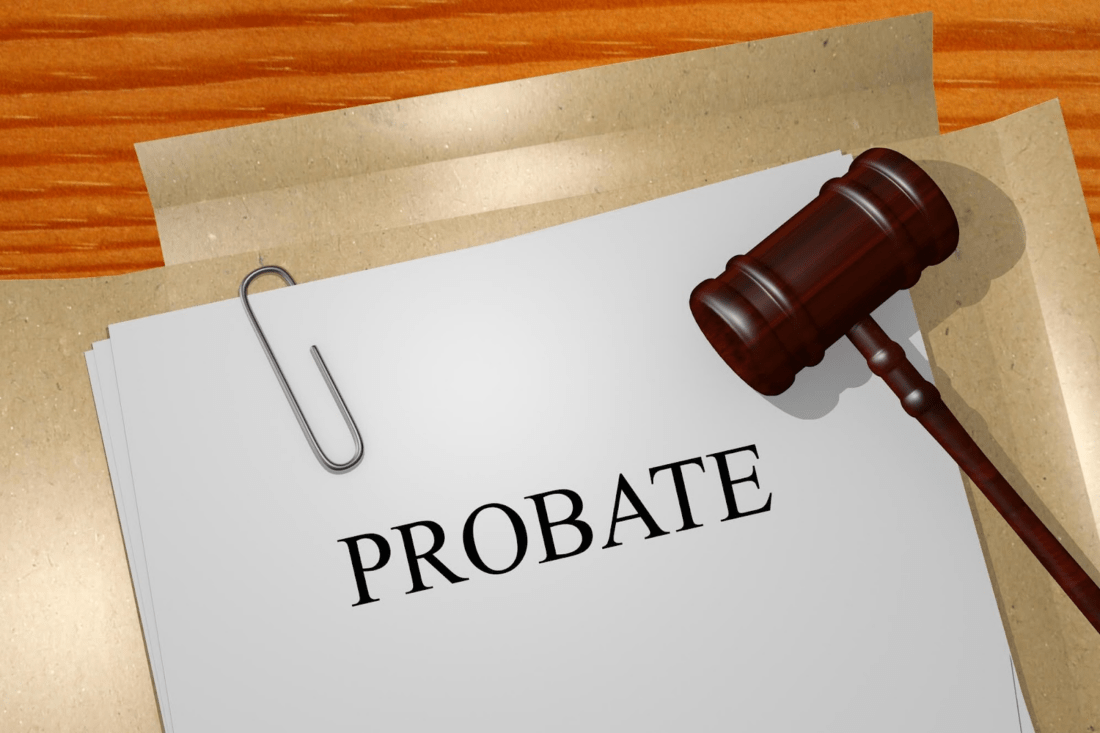Chances are you know of a family torn apart by fighting over inherited assets from a deceased family member. Or perhaps you’re going through this yourself. We know how hard this can be and we hope you find this post helpful.

Unfortunately, this situation is incredibly common when it comes to wills and estates. That’s where probate law comes into play – it ensures that assets are allocated as the person who died intended, and helps to handle any disputes you may encounter.
Let’s take a look at the probate process and the varying disputes that can come out of the woodwork.
The probate process explained
The person responsible for managing this process is called the executor (if named in the will) or an administrator (if appointed by the court). This could be a close friend or family member, or even a solicitor.
If there’s a valid will
If the person who died left a valid will, the executor must apply for a grant of probate. This gives them the legal authority to administer the estate.
If there’s no will
If there isn’t a will, you or another eligible person – usually a family member – must apply for letters of administration. This lets you be appointed as the estate’s administrator. The administrator has the same duties as an executor but must share assets according to intestacy laws. These are the laws that determine inheritance rules when there is no will.
Whether you’re relying on an executor or an appointed administrator, the key steps in the probate process include:
- Identifying and valuing the assets of the person who died
- Settling outstanding debts and taxes
- Distributing assets according to the will or intestacy laws
Common probate disputes
Despite the structured legal process, conflicts can arise during probate as a result of disgruntled family members and distant relatives coming out of the woodwork.
Below are some of the most frequent probate disputes:
Challenges to a will’s validity
A will contest occurs when someone says a will is invalid. Common grounds for challenging a will include:
- Lack of testamentary capacity – The person who died must have been sound of mind when creating the will. If they suffered from a cognitive impairment (such as dementia), the courts could decide that the will is invalid.
- Undue influence or coercion – This means someone who pressured, manipulated or threatened the deceased into altering their will.
- Fraud or forgery – Meaning the will has been tampered with or forged.
- Failure to comply with legal requirements – A will must be properly executed according to state laws (e.g., signed and witnessed correctly). If it is not, it could be considered invalid.
Executor disputes
You may find that being the executor isn’t exactly a privilege, it’s more a responsibility. You can become a target and conflicts arise when beneficiaries disagree with your actions.
Common disputes include:
- Mismanagement of the estate – If an executor mispends funds (e.g. on themselves) or acts against the estate’s best interests.
- Delays in distribution – Executors must deal with estates within a reasonable time. If you delay unnecessarily, you can be removed as an executor.
Family provision claims
In certain jurisdictions, you can contest a will if you reasonably believe you have been unfairly left out of the inheritance.
Common (and eligible) people who can claim include:
- Spouses or domestic partners
- Children (including stepchildren and adopted children)
- Financial dependents of the deceased
If a claim is successful, the court may redistribute the estate to make sure it’s fair for everyone.
Disputes over asset distribution
Even when a will is valid, people can still disagree about how assets are distributed.
Common issues include:
- Lack of clarity in the will – Unclear wording can lead to disagreements among beneficiaries.
- Jointly owned assets and superannuation – This is a tricky one – some assets (such as joint bank accounts or superannuation) do not automatically form part of an estate, which can mean arguments over who is entitled to the other half.
Intestacy disputes
As mentioned, if someone dies without a will, intestacy laws dictate how their estate is divided.
However, arguments happen when:
- Family members disagree over who should administer the estate.
- Multiple relatives make competing claims for inheritance.
- Complex family structures (such as blended families) create legal grey areas.
As you can see, things can get complicated and go south real fast, which illustrates…
The importance of seeking legal advice
Probate disputes can be emotionally draining and financially costly during a life event that is already challenging and really doesn’t need the extra baggage.
Whether you are an executor or a family member with concerns about an estate, you should get legal advice early from a probate lawyer to minimise conflicts efficiently and protect your interests.
Key takeaways
- Probate law is a legal process that distributes a deceased person’s assets according to their will.
- If there is no will, a family member or eligible person must apply for letters of administration to act as the estate’s administrator.
- Common probate disputes include will contests, executor disputes, family provision claims, asset distribution disputes, and intestacy issues.
Author: Marshall Thurlow is Director and Founder of Orion Marketing Pty Ltd. He is a digital marketer with expertise in SEO, website design, content marketing, and project management.




